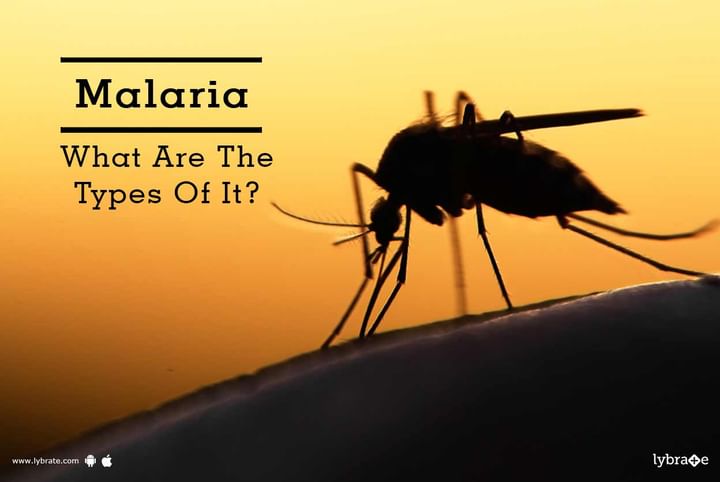Malaria - What Are The Types Of It?
Mosquitoes might be tiny creatures, but are responsible for some of the most dreadful diseases, one of them is malaria. Malaria is caused by a parasite that is transmitted through mosquito bites directly or from mother to unborn baby and through blood transfusions. Very widely spread in the Asian and African continents, people travelling here are very cautious of this disease. In areas that are notorious for mosquito infestations, the local people also take preventive measures to ensure mosquito breeding is prevented or at least minimised.
Spread of the disease: When a mosquito bites an infected person, it picks up the parasite from the person and when it next bites another person, the infection is also transmitted. From there, the parasite travels to the liver and into the bloodstream before reaching another individual. While all people are prone to getting the infection, elderly people, children, pregnant women, and immunocompromised people are at greater risk. Also, new travellers are at greater risk than local people, who are to some extent immune to mosquito bites.
Symptoms: The disease is characterised by moderate to severe shaking chills which are more common in the evening, high fever, profuse sweating, headache, vomiting, and diarrhoea. Quite often, there is about a 4-week gap between the time of the mosquito bite and the onset of symptoms. However, in many people, the disease could lie dormant and symptoms manifest when the immunity is severely lowered.
With the gradual progression of the disease, more severe symptoms could evolve as below, and that is when malaria becomes life threatening.
- Cerebral malaria: Once the parasites enter the bloodstream, they can block the minor blood vessels in the brain leading to cerebral oedema and even brain damage. It could eventually result in coma.
- Anaemia: There is large-scale destruction of red blood cells, leading to severe anaemia and weakness and fatigue
- Breathing problems: Similarly, accumulation of fluid in the lung spaces can lead to pulmonary oedema which causes difficulty breathing and lung failure.
- Organ failure: Blood flow blockage to other vital organs like kidneys, liver, and spleen are also possible. The spleen may rupture leading to severe haemorrhage.
- Low blood sugar: The malarial parasite per se and the most commonly used medicine (quinine) are both known to cause low blood sugar levels. This can result in coma and even death.
Once the diagnosis is confirmed, treatment usually consists of chloroquine, Mefloquine, quinine sulfate, or hydroxychloroquine. There are various drug-resistant forms of malaria, and they may require combination therapy.
Prevention assumes greater significance with travellers going for vaccines prior to visiting these areas. Even the local people should find ways to avoid breeding of mosquitoes, use mosquito repellents and nets to avoid the infection.



+1.svg)
